President Trump’s willingness to use his Twitter platform to criticize individual companies added another challenge for financial PR firms. Amazon, for instance, lost billions in market valuation following a Presidential tweetstorm.
 Richard Dukas |
Richard Dukas, Chief of Dukas Linden Public Relations, told O’Dwyer’s his firm put a strong focus on financial broadcast news to help clients gain visibility in a media landscape increasingly crowded by 24/7 Trump reports.
The New York-based firm, which generated $5.2 million in financial fee income, arranged guest hosting segments for clients on business programs such as CNBC’s “Squawk Box” and “Closing Bell,” Fox Business Network’s “Mornings with Maria” and PBS’ “Nightly Business Report.”
During 2017, DLPR got more than 600 broadcast interviews for clients, primarily on CNBC, Bloomberg and Fox.
Dukas said his firm’s knowledge of investment trends also drove market-moving media placements.
At a time of investor activism, DLPR showcased campaigns by activist short-sellers Muddy Waters Research and Spruce Point to uncover corporate wrongdoing.
The firm presented Okapi Partners, a top proxy solicitor for companies and investors, in activist situations.
|
|
As the financial world continues to debate “passive versus active” investment strategies, DLPR raised the visibility of ETF investors such as Global X Funds and ARK Invest.
Looking ahead, Dukas said renewed equity market volatility may increase investment in non-correlated assets such as real estate, private equity and hedge funds, causing alternative investment firms to seek PR assistance.
He noted that financial services firms are showing more interest in digital communications, although they remain cautious about using tools such as LinkedIn, HubSpot, Twitter, etc. due to compliance issues.
Crisis communications will take center stage, as companies seek to develop “what if” plans to address cyber-threats, #MeToo issues, regulatory shifts and volatile -markets.
“Given the information overload from social media, tweets, blogs and 24/7 news, management must do a better job of positioning — with clear and compelling messages that convey a company’s distinctive value proposition,” Dukas said. “In this context, DLPR believes earned media remains a highly influential and effective channel and should have a prominent role alongside the newer trend of ‘content creation’ campaigns.”
Developing social purpose
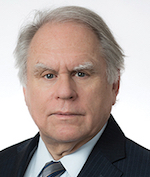 Bill McBride |
Corporate boards will look back on 2017 as a time when managing reputational risk became significantly more challenging, said Bill McBride, Senior Advisor at RF|Binder Partners, which registered $4.6 million in financial fees.
“After spending 2017 dodging Presidential Twitter darts, corporate boards entered 2018 with a warning from the biggest global asset managers — the titans of index investing — to expect more intense scrutiny of the social impact of their business models,” said McBride. “Adding to the pressure was new research refining the concepts of the ‘materiality’ of environment, social, and governance factors in corporate performance, tightening the connection between social impact and company valuations.”
He noted that the shooting at Marjory Stoneman Douglas High School thrust weapon manufacturers, retailers, logistics companies and financial service companies into the center of a public debate on gun violence, one of society’s most contentious issues.
“In the wake of Stoneman, the surge of such Twitter hashtags as ‘#BoycottDelta’ or “BoycottNRA” underscored how quickly public opinion forms and surges — and also can fade — in the era of social media,” said McBride. “This volatility can have significant effects on the perceptions and behavior of customers, employees, shareholders, distributors, regulators and the legal community.”
Data from RF|Binder’s whitepaper, “Navigating Risk in the Age of Corporate Purpose,” shows that boards will not easily sidestep the public’s increasing tendency to see corporate behavior through the lens of social impact.
More than three quarters of respondents said they either “strongly support” or “somewhat support” companies taking a stance on increased access to health care or on environmental sustainability.
Seventy percent “strongly support” or “somewhat support” companies that adopt a position on gender equality.
“In this volatile, fractious communications environment, corporate clients are coming to understand the importance of developing ‘purpose’ as the touchstone for all their internal and external relationships,” said McBride. “Successful companies in this new era of hyper-connectivity will be those who develop an authentic, purpose-driven approach to communicating the value of their organization.”
Consider entire value chain
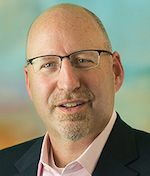 Luke Lambert |
Luke Lambert, CEO of G&S Business Communications, said his firm’s approach to financial communications is based on a modern definition of business value as measured by the three R’s: Reputation, Risk and Return.
The goal is to add greater dimensions to client strategies by providing data-driven insights that differentiate a company’s financial performance or investments.
“In today’s hyper-connected, hyper-competitive marketplace, our goal is to identify meaningful advantages for clients by considering their entire value chain,” said Lambert. “Because our agency’s business communicators bring in-depth knowledge about heavily regulated industries, such as agriculture and food, clean energy and financial services, corporate clients also rely on us to advise their strategic investment units.
“These investment arms of global companies are uncovering some of the most exciting growth opportunities, many in emerging business areas that seek to solve the world’s toughest challenges, such as food security and climate change.
“Our guidance and programs support these portfolio companies as they achieve scale, seek new routes to market, or encounter pressure from competitors, regulators, legislators or suppliers,” said Lambert.
G&S, which had $1.2 million in financial income, counsels corporate issuers on how to provide a more complete picture of their material value to shareholders. “Our sustainability experts and analysts work closely with CFOs and CCOs to develop integrated financial reports that disclose risk and returns in terms of environmental, social and governance factors,” said Lambert. “Lack of transparency will be no longer tolerated as major investment companies and fund managers call for specific reforms—among them workforce diversity, pay parity and social responsibility — that drive long-term value and uphold the social license to operate.”
Strengthening social capabilities
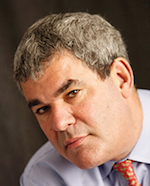 Martin Mosbacher |
Martin Mosbacher, CEO of Intermarket, said his firm used 2017 to evolve from its focus on the intersection of finance and technology.
“After a few sluggish years, Intermarket, rebounded last year with the addition of Overstock.com’s tZero unit, blockchain/crypto-currency, BioCatch (cybersecurity) and Aperion Investment Partners (London-based venture capital group).
On the more traditional front, Intermarket, which generated 2017 financial fees of $4 million, began work with AST (shareholder ownership services provider) and New Frontier Advisors (institutional research and investment advisory firm).
Intermarket renewed ties with NASDAQ, expanded business with RBC Wealth Management and formalized a longstanding relationship with the University of Chicago Booth School of Business as the school’s PR agency.
In addition to client work, Intermarket placed a new emphasis on expanding its content development and social media teams,” said Mosbacher. “Utilizing the PESO model we are able to provide our clients with 360 degree communications advice, strategy development and service.”
He said the firm is “developing new modes of content development and placement and expecting to make some significant additions to our client roster and capacity in 2018.”
Intermarket chalked up $4.1 million in financial income.
Countering fake news
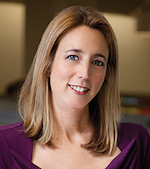 Jacqueline Kolek |
Peppercomm worked with the Institute for Public Relations in 2017 to study the challenges faced by CCOs and CMOs in the business work, said Jaqueline Kolek, Managing Director of the firm with $7.1 million in financial income.
The first study found respondents were concerned about the uncertainty of the Trump Administration’s communications policies and were increasing efforts to be better prepared to respond (or not respond) if the Administration does something that affects their organization.
Kolek said the second study dealt with how communicators were reacting to the rapid evolution of digital and data and found that while most agreed that implementing digital and data is critical to their success, they are struggling with how to describe and deploy these technologies.
She said Peppercomm’s 2018 priorities include helping clients prepare for and navigate potential issues and crisis situations in today’s highly-politicized, fake news environment and to communicate their corporate purpose to align themselves with organizations that share their values.

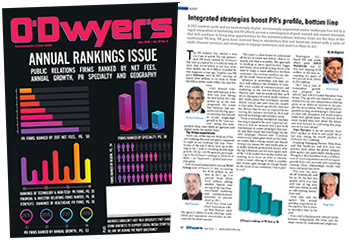

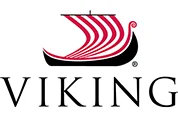 Edelman handles Viking Holdings, the river and ocean luxury cruise line that plans to raise $1B via an IPO priced in the $21 to $25 per share range.
Edelman handles Viking Holdings, the river and ocean luxury cruise line that plans to raise $1B via an IPO priced in the $21 to $25 per share range.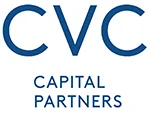 Teneo is handling the initial public offering of CVC Capital Partners, one of Europe’s largest private equity firms with nearly $200B in assets under management.
Teneo is handling the initial public offering of CVC Capital Partners, one of Europe’s largest private equity firms with nearly $200B in assets under management. Brunswick Group represents Endeavor Group Holdings as it agrees to go private via its acquisition by Silver Lake technology investment firm, which is handled by Edelman Smithfield.
Brunswick Group represents Endeavor Group Holdings as it agrees to go private via its acquisition by Silver Lake technology investment firm, which is handled by Edelman Smithfield. Tod Donhauser, a nine-year veteran of Edelman, has joined H/Advisors Abernathy as managing director and head of its San Francisco office.
Tod Donhauser, a nine-year veteran of Edelman, has joined H/Advisors Abernathy as managing director and head of its San Francisco office. Intelligent Group Ltd, a Hong Kong-based financial PR firm, has priced its initial public offering of 1.9M shares at $4, which is the low end of the $4 to $5 range.
Intelligent Group Ltd, a Hong Kong-based financial PR firm, has priced its initial public offering of 1.9M shares at $4, which is the low end of the $4 to $5 range.


 Have a comment? Send it to
Have a comment? Send it to 
No comments have been submitted for this story yet.